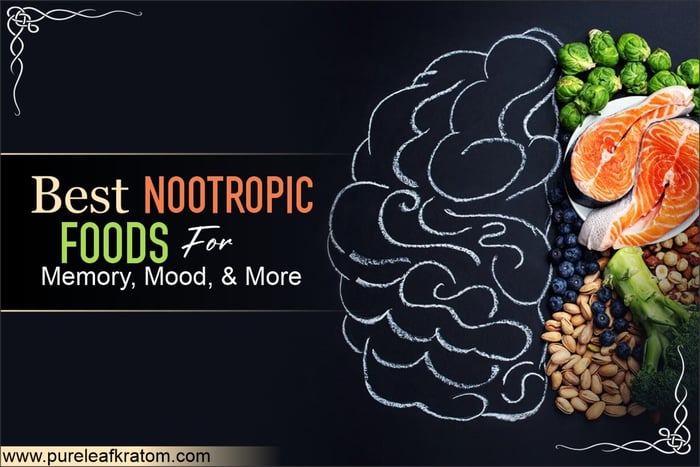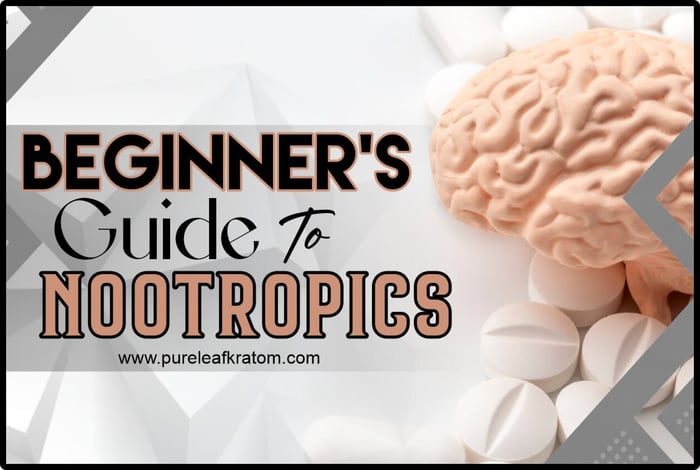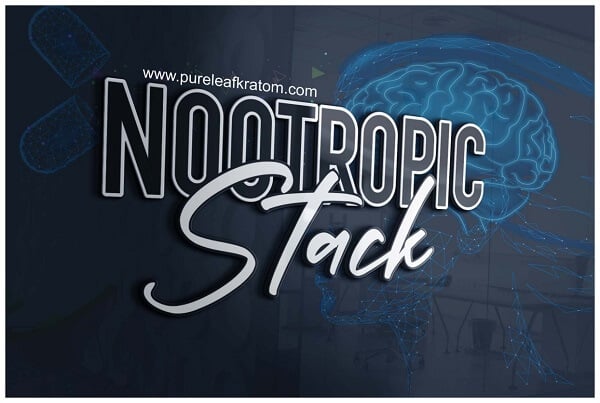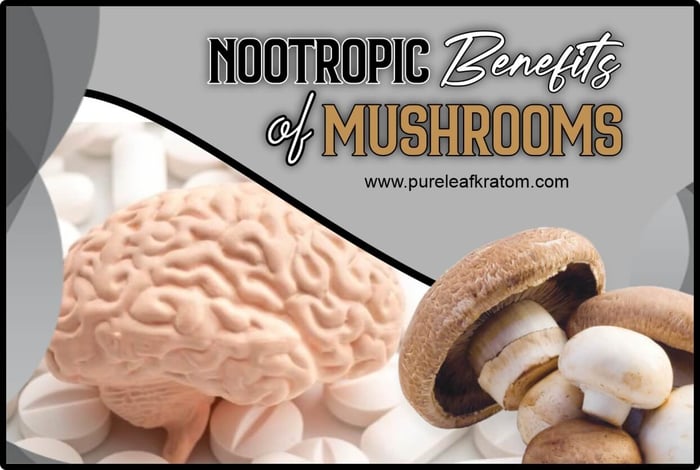
The Surprising Nootropics Benefits of Mushrooms
Mushrooms have been commonly used for medicinal purposes for centuries, and recent research has shed light on their cognitive-enhancing benefits, making them a popular addition to the nootropics community.
In this article, we have covered the various ways in which mushrooms can benefit cognitive function and overall brain health. From improving memory to reducing anxiety, the nootropic benefits of mushrooms are many and can greatly enhance mental performance. However, it is important to consult with a healthcare professional before incorporating mushrooms into your nootropic routine.
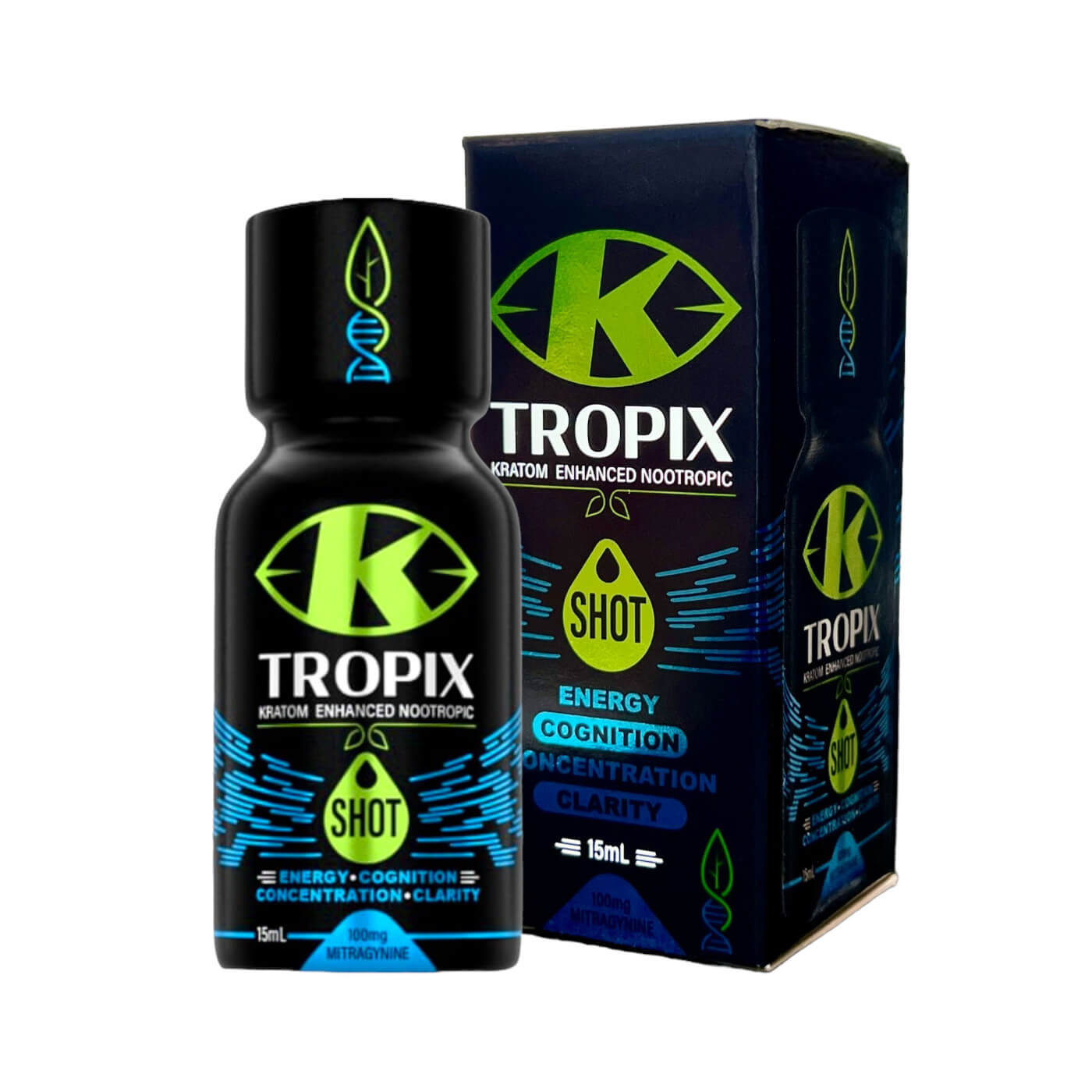 Click Here To Buy K Tropix Kratom Enhanced Nootropic Shot Online
Click Here To Buy K Tropix Kratom Enhanced Nootropic Shot Online
How Do Mushrooms Relate to Nootropics?
Mushrooms have been used in medicine for millennia, and some species are believed to provide cognitive benefits. These benefits have led to the designation of certain mushrooms as "nootropic mushrooms." Some studies have suggested that specific substances found in nootropic mushrooms, such as beta-glucans and ergot alkaloids, may positively affect brain function and cognitive performance.
However, further research is needed to completely understand the mechanism by which these mushrooms may increase cognitive function and determine the safety and usefulness of these substances as nootropics. It is also crucial to know that not all mushrooms have the same effects, and some are dangerous if ingested in excessive numbers.
Nootropics Benefits of Mushrooms
The nootropic benefits of mushrooms are attributed to the various compounds they contain, such as ergothioneine, polysaccharides, and antioxidants.
Let's look into the details of how mushrooms give us nootropics benefits.
- Improving Memory
Some species of mushrooms, such as Lion's Mane, are considered to improve memory function during animal studies. These mushrooms contain compounds that can stimulate nerve growth and protect neurons, leading to improved cognitive performance.
- Reducing Anxiety and Depression
Some species of mushrooms, such as Reishi, are popular for having anti-anxiety and antidepressant effects. These effects are thought to be due to the presence of beta-glucans, which can help regulate the immune system and improve overall mood.
- Enhancing Neuroplasticity
Neuroplasticity refers to the ability of the brain to adapt and form new connections. Mushrooms contain compounds, such as ergothioneine, that are shown to enhance neuroplasticity and promote brain health.
- Protecting Against Neurodegeneration
Some species of mushrooms, such as Chaga, contain antioxidants, which can protect against neurodegeneration and age-related cognitive decline. Antioxidants help neutralize free radicals and prevent oxidative damage to brain cells.
- Improving Attention and Focus
Some species of mushrooms, such as cordyceps, have been shown to improve attention and focus. This is thought to be due to the presence of compounds that can improve blood flow to the brain and increase energy production.
- Antioxidant Properties
Some species of nootropic mushrooms, such as Chaga, are rich in antioxidants and may help protect against cellular damage.
- Reduced Inflammation
Some nootropics mushrooms, such as Reishi, are believed to have anti-inflammatory properties.
- Improved Cardiovascular Health
Some species of nootropic mushrooms, such as Reishi, are believed to improve cardiovascular health by reducing blood pressure and cholesterol levels.
Different Nootropics Mushrooms
Different types of mushrooms have a wide variety of health benefits. The correct kind of mushroom supplement can enhance most main aspects of health.
- Cordyceps
Cordyceps mushrooms are extremely uncommon and valuable because they can only be found in the Himalayas. It has long been revered as a powerful libido and performance enhancer, mood raiser, and anti-aging cure in Indian, Tibetan, and Chinese communities. Several studies support its stimulating effect on the body and brain; this supplement is popular in use as a cognitive and emotional enhancer. It appears that this invigorating effect extends to one's state of mind as well. Cordyceps may prevent age-related brain degeneration by acting as an antioxidant and anti-inflammatory medication. - Chaga
Chaga is used to reduce inflammation and oxidative stress in the body and the brain to a significant degree. These therapeutic mushrooms have one of the highest ORAC values of any meal. The ability of a diet to remove dangerous free radicals from cells and so avoid oxidative damage is quantified using the ORAC (Oxygen Radical Absorbance Capacity) scale. Therefore, Chaga has the potential to promote healthy neuronal function, which, in turn, may boost cognitive performance in a wide range of contexts. As you become older and your brain cells gradually die off, this becomes increasingly crucial. That's why Chaga mushrooms have great potential as an anti-aging food supplement. Because of its ability to restore balance to the body's hormonal responses to stress, Chaga is also classified as an adaptogen. - Reishi
Most traditional medicine practitioners recommend Reishi, because it is the most popular medicinal mushroom. Even more so than ginseng, it is the most highly sought-after natural cure in traditional Chinese medicine. This "mushroom of immortality" is utilized medicinally for thousands of years in a number of Eastern cultures. For its therapeutic effects, it relies on a group of chemicals called ganoderic acids, which are unique to this species. The memory-enhancing properties of the Reishi mushroom make it a popular supplement. Despite the cognitive impairment, multiple studies have shown that it can increase different skills. As an adaptogen, Reishi has the potential to control the "fight or flight" response by balancing the hypothalamic-pituitary-adrenal (HPA) axis. You may find that your reaction to stress and anxiety improves as a result, allowing you to maintain composure even under pressure. - Lion’s Mane
One of the most well-known natural nootropics, Lion's Mane is widely used to boost cognitive function. It is known to contain exceptional nootropics benefits of mushrooms. Notably, it promises to be a highly effective NGF (Nerve Growth Factor) enhancer. Neurotrophic factor (NGF) is a naturally occurring peptide that plays an important role in the upkeep and viability of neurons. As an additional function, it facilitates axon outgrowth, which plays a critical role in the brain's adaptability. Neuroplasticity, the brain's capacity to forge and strengthen neural connections and synapses, is critical for learning and memory development. It also helps to maintain healthy brain tissue and promotes the growth of new brain cells, both of which contribute to enhanced mental acuity. Hericenones and erinacines, two chemical substances unique to Lion's Mane, are shown to stimulate the production of nerve growth factors in cultured neuronal cells. It is recommended by many users to use this in their daily stack as one of the greatest nootropics for improving your brain's overall performance.
Conclusion
In conclusion, the Nootropics benefits of mushrooms are numerous and can greatly enhance cognitive function. From improving memory and reducing anxiety to enhancing neuroplasticity and protecting against neurodegeneration, mushrooms are a versatile and effective Nootropic supplement product.
However, it is important to consider that not all mushrooms are safe to consume, and some are toxic too, if consumed in large amounts. It is important to consult a healthcare professional before using nootropic mushrooms as a supplement.
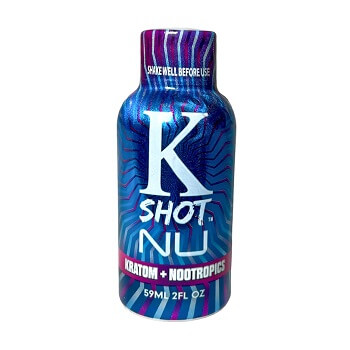 Click Here To Buy K Shot Nu Kratom + Nootropics Energy Online
Click Here To Buy K Shot Nu Kratom + Nootropics Energy Online
Frequently Asked Questions
Q: Can I take mushroom nootropics with other supplements?
A: It is always better to consult a healthcare professional before combining mushroom Nootropics with other supplements. Some combinations may have adverse effects and can interact with medications.
Q: Are there any side effects to using mushroom nootropics?
A: Some people may experience digestive discomfort or allergic reactions when using mushroom nootropics. It is important to consult with a healthcare professional before starting any new supplement regimen.
Q: What is the recommended dosage for nootropic mushrooms?
A: The recommended dosage for nootropics mushrooms varies depending on the species and the individual. It is important to follow the recommended dosage on the product label and to consult a healthcare professional to get the utmost nootropics benefits of mushrooms.


